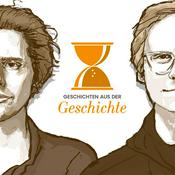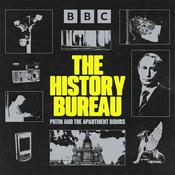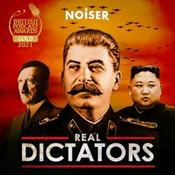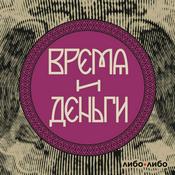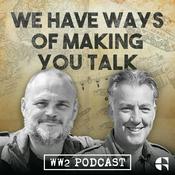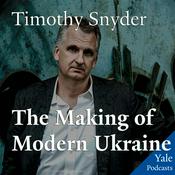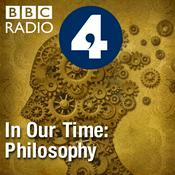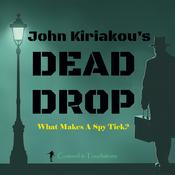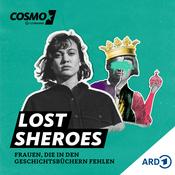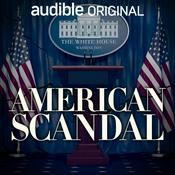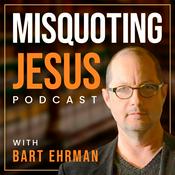34 Episoden
- This episode of the Baltic Ways podcast welcomes Dr. Liina-Ly Roos, assistant professor at the University of Wisconsin-Madison in the German, Nordic, Slavic+ department. The discussion centers on Liina-Ly’s recent book: The Not-Quite Child: Colonial Histories, Racialization, and Swedish Exceptionalism (University of Washington Press, 2025), in which she analyzes films and literature that portray Indigenous Sámi, Tornedalian, and Finnish-speaking children and how these figures disrupt the normative understanding of growing up in Sweden. These cultural texts are filled with tensions of assimilation, invisibility, and the struggle to grow in a society that demands conformity to a specific “Swedishness.” The discussion also considers parallels to the Baltic context. Dr. Roos is a graduate of the University of Washington and a grant recipient from the Association for the Advancement of Baltic Studies.
Baltic Ways is a podcast from the Association for the Advancement of Baltic Studies, produced in partnership with the Baltic Initiative at the Foreign Policy Research Institute. The views and opinions expressed in this podcast are those of the authors and do not necessarily reflect the official policy or position of AABS or FPRI.
Image: Adobe Stock
This is a public episode. If you would like to discuss this with other subscribers or get access to bonus episodes, visit fpribalticinitiative.substack.com - Over 100,000 Ukrainian refugees have come to Estonia at some point since Russia’s full-scale invasion of Ukraine in February 2022. Of those, tens of thousands remain in the country, building their own communities and integrating with local Estonians. For many, art is an important assertion of Ukrainian identity, but also a bridge to their new neighbors. Scholar and filmmaker Parker Watt set out to document these stories and embarked on an integration journey of his own during a year spent in Estonia, finding meaning at each step, proverbial and literal, along the way.
Image: Facebook | Ukrainian song and dance group “Volya”
Baltic Ways is a podcast from the Association for the Advancement of Baltic Studies, produced in partnership with the Baltic Initiative at the Foreign Policy Research Institute. The views and opinions expressed in this podcast are those of the authors and do not necessarily reflect the official policy or position of AABS or FPRI.
This is a public episode. If you would like to discuss this with other subscribers or get access to bonus episodes, visit fpribalticinitiative.substack.com - Baltic Ways presents a bonus episode from our partners at the EUROPAST podcast. The EUROPAST podcast explores Europe’s most pressing challenges of public history, investigating the complex and contested spaces of public memory, memory activism, and best practices for engaging the public in a dialogue about the past.
In this episode, hosts Professor Violeta Davoliūtė (Vilnius University, Lithuanian Institute of History) and Professor Dovilė Budrytė (Vilnius University / Georgia Gwinnett College / Vytautas Magnus University) are joined by renowned political scientist Professor Jan Kubik (Rutgers University) to explore the critical intersection of political populism and the misuse of history.
Professor Kubik revisits his influential typology of memory actors, focusing on the central conflict between “mnemonic warriors”, who promote a single, binary, and often fictionalized version of the past, and “mnemonic pluralists,” who advocate for complexity, debate, and the inclusion of multiple perspectives.
The discussion tackles pressing questions: How do populist movements weaponize historical narratives to create “us vs. them” dichotomies? How does this assault on history sustain authoritarian regimes and threaten democratic institutions? And what is the role of public history in a world where the past has become a battleground?
This conversation offers a vital framework for understanding the high-stakes struggle over memory and its central role in the fight to defend democracy today.
The podcast series is part of a project that has received funding from the European Union under the WIDERA programme (EUROPAST project, Grant Agreement No. 101079466).
Music: Istok Zapad, Whiteheads. ℗ Croatia Records, 2021
Image: Adobe Stock
This is a public episode. If you would like to discuss this with other subscribers or get access to bonus episodes, visit fpribalticinitiative.substack.com - What is the ongoing relevance of Baltic Studies? As the new academic year gets underway, we speak with three scholars in the field about what it means to study the Baltic region today. What challenges is the field facing, and what might the future look like? What does the broadening of Baltic Studies beyond the three Baltic states mean for the field?
Jörg Hackmann, the current president of the Association for the Advancement of Baltic Studies, joins, along with Epp Annus and Karsten Brüggemann, leading researchers who bring post-colonial and historical perspectives to the table.
Transcript
Ben Gardner Gill: Welcome to Baltic Ways. I’m your host, Ben Gardner Gill. Today, as a new academic year is underway, we thought it was time to take a look at the state of Baltic studies as a field. Joining us today are three scholars with different perspectives on where the field is, where it’s been, and where it’s going.
Jörg Hackmann is an Alfred Döblin professor at the Department of History, University of Szczecin, Poland. He serves as President of the Association for the Advancement of Baltic Studies in the 2024 to 2026 term. Hackmann holds a PhD from the Free University of Berlin and received his habilitation at Greifswald University with publications focusing on the history of Northeastern and East Central Europe, in particular on historiography, memory cultures, civil society, and regionalisms, with a focus on transnational entanglements.
Epp Annus is an associate professor at the Institute of Humanities at Tallinn University and a lecturer at the Department of Slavic and East European Languages and Cultures at Ohio State University. She received her PhD from the University of Tartu. Annus is a post-colonial and de-colonial scholar interested in the complex ideological entanglements of the Soviet and post-Soviet periods.
Karsten Brüggemann is a professor of Political and Social History at the School of Humanities of Tallinn University. He received his PhD in history from the University of Hamburg in 1999 with a study of the Russian Civil War in the Baltic region.
In 2013, Brüggemann defended his habilitation at the University of Gießen with a study on the perception of the Baltic provinces in Russian imperial culture. Please enjoy the episode.
Jörg, Epp, Karsten, thank you so much for joining Baltic Ways. Jörg, we’re just going to jump in right with you. You are the President of the Association for the Advancement of Baltic Studies (AABS), so it seems most appropriate to ask you what exactly is Baltic studies?
Jörg Hackmann: This is actually a very complicated question because there are various, different understandings of Baltic studies or the Baltic region.
If we would start with the Association for the Advancement of Baltic Studies: There the background are the exiled communities of the three Baltic nations of Estonians, Latvians, and Lithuanians. This would be one understanding, but if we stick with these [exiled communities], there’s another larger exiled community, which would be Germans from these regions: the so-called Baltic Germans. This would be a narrow approach, but there are some wider approaches. The widest actually would stem from the Baltic Sea Region, which also has Baltic in its name in most of the languages. It’s very difficult or even impossible, right from the beginning to make a distinction between Baltic in the sense I described before—of the three Baltic nations—and the wider region.
If we do the wider region, of course, then we could talk about political geography. One of the widest understandings would be the understanding of the Council of the Baltic Sea States, which does not only include states bordering the Baltic, but also states a little bit further away, like Norway and Iceland. And of course, there are reasons why this is so. The Council of Baltic Sea states, when it was founded, also included Russia. Russia is now out for obvious reasons, and this then would lead us to another understanding. So, to what extent is Russia included in our understanding of Baltic?
You’ll see there are quite a lot of diverging understandings. If you ask the Journal of Baltic Studies, which is edited by AABS, then we might find an authoritative answer. They say they focus on the Baltic states and the Baltic Sea region, which also implies that there’s a difference between Baltic states—which they understand as the three Baltic states of Estonia, Latvia, and Lithuania—but also they include the wider Baltic Sea region. This means we have these tensions in the understanding of Baltic studies. And I would also argue that this tension adds very much to the relevance of Baltic studies.
BGG: Absolutely. It’s hard to define the field, but there’s also some clear through lines there.
I’m going to ask Epp to pick those apart a little bit. Jörg already alluded to the obvious reasons for why Russia was kicked out of the Council on Baltic Sea States: of course, Russia’s full-scale invasion of Ukraine in 2022. And that’s led to increased interest in the region as a whole and in the three Baltic states specifically.
So Epp, could you maybe tell us a little bit about the relevance of Baltic studies, especially in the last three plus years since February 24th, 2022, but also more generally?
Epp Annus: Yes. So indeed, a lot has changed since February 2022. We’ve seen a huge rise of interest in the Baltic Sea region. I was teaching at the Ohio State University—February 24th, 2022, I drove to my campus, and I listened to the local radio, NPR, and who was talking there but Kaja Kallas, the then Estonian Prime Minister. And strikingly this day was Estonian Independence Day (of course, that fact was not mentioned at all in what Kaja Kallas was saying to American audiences). That fact already for me is such a symbolic marker of the importance of our region. And I think it’s a scholar’s mission to make sure that its importance reaches further from politics. And as scholars, we can provide facts, we can provide history, we can contextualize.
And there has been a lot of interest in this. For example, I think many of us have experienced that it’s now way easier to publish books, articles, not only about the Baltic states per se, but also particularly about Estonia, about Latvia, about Lithuania. Whereas in 2010 you would come with a manuscript about the Baltic States—historians were always welcome I think, but in cultural studies they would say, “Yeah, sure, but why don’t you extend to the rest of Eastern Europe?” And now I came with a manuscript about Estonia in the 1960s to 1990s, and it was welcomed and was speedily published. This is, I think, a very good marker for our era.
And I think we have a mission. We have a role as part of NATO and the European Union as a region. We have more authority, and we need to talk, encourage the voice of our region, also in larger terms to the audience. I encourage us all to work like hell to publish a lot to make our voice audible because we are not heard these days.
BGG: Absolutely. We’ve definitely seen that across the disciplines and Baltic studies is an interdisciplinary field. It’s area studies: So, there are historians, there are political scientists, there’s cultural studies, there’s linguistics, there’s all sorts. I couldn’t name all of them.
Karsten, from your perspective, teaching in Estonia, as a German, but also as someone who’s engaged throughout the region, could you speak a little bit to Epp’s points about the relevance of Baltic studies as a field and the impact that’s had?
Karsten Brüggemann: Yes, it’s a sad truth, right?
I mean, this is how attention works. It’s only really interesting when something happens or when something is about to happen. This classical headline: Is Narva next? This started already in 2014 after the annexation of Crimea, not the least, because historians and of course Estonian historians, have pointed to the similarities and how this annexation of Crimea was performed, right—similarities to the annexation of the Baltic states in 1940. And so, you immediately have this connection to the historical experiences in this particular region.
This makes this historical experience also available right now. When we follow the political discussions in Europe, when we have now these European, Western European, Central European politicians who would say, “Oh my God, if we would have listened to what the Baltic colleagues have told us all the time, maybe we would’ve been better prepared for what is waiting, in the future.” This is, again, pointing at the relevance of this particular very small, very tiny region, even on a global scale. And as Epp pointed out, this is a sad fact, but this really is an encouragement for us to really be active and to publish. So I can only support Epp.
BGG: Absolutely. Yes, it is a small region on a global scale, but there are fairly unique lessons that the Baltic can teach the rest of the world, especially given current conflicts.
So Jörg, back to you. You published a piece when we started up AABS, our LinkedIn account, just a few months ago, earlier in 2025, about what Baltic studies can teach the world. And I think very much to Karsten’s point, it’s looking at these historical examples. From your own perspective, what value does Baltic studies provide moving forward? We can point back and say, you should have listened, here’s the history and whatnot, and there’s value in that.
Maybe it gets people to listen down the road, but what’s the ongoing relevance of the field, as we look forward?
JH: I would start with a rather old quote by an Estonian intellectual, who was saying that small nations have a wider horizon because they cannot ignore the existence of others.
This you could use as a motto for what, let’s say, the value of Baltic studies is—it opens the possibility to look at wider topics from the perspective of smaller nations and smaller groups. So, I would say it’s more open to problems and it’s not just arguing so that topics are relevant because they’re connected to big nations or great powers—it’s discussing or analyzing how these smaller groups act, how they relate, how they interact.
This, I would say, is an important issue: what Baltic studies can tell us. It’s not just about studying the big players.
This is relevant in cultural studies. And if we look once again at political, contemporary issues and issues of security, now playing a major role, here we could see that. I’d say the state of debate is much more developed if we talk about Baltic studies than just seeing it from the perspective of great powers.
BGG: I think one of the things you allude to there is a more developed debate within the field of Baltic studies. So Epp I want to turn to you here, which, you’ve made the point—and I would love to hear more of your thoughts on this—about the need for Baltic studies scholars to be political.
To use their knowledge, to share their knowledge, and importantly, share it with people who can use it, with people who need it, with people who want it, people who maybe don’t know that they want it yet.
Baltic studies has been having a conversation about decolonization for several years now. What does it mean to decolonize in the Baltic context, and how has that then informed the insights the field has provided to the rest of the world over the last few years?
EA: Yes. First of all, I would start out with pointing out that decolonization can mean very different things. It is very open to how you want to interpret that. And secondly, I would add that compared to some other fields, for example, Slavic studies or East European studies per se, Baltic studies have always been actually more alert to questions of power struggles, questions of colonialism, et cetera.
We had, for example, already in 2006, Violeta Kelertas edited the volume Baltic Postcolonialism, which has become an important volume for other parts of Eastern Europe to think through their pasts.
So we have been ahead of the curve. What would it mean to decolonize now, after 2022?
Well, first of all, it’s very clear now, when talking about Russian imperial aggression people take it more seriously. Before that, there was a “vast majority of these ultranationalists there in the Baltics, you can’t take them seriously.” Now as Karsten was saying, the reaction is rather, “Why didn’t we listen to them earlier?” So, while being ahead of the curve, there’s still a lot that decolonization can do. I mean, very typically what is meant under this, just generally in Slavic studies, in East European studies, is to overcome the distortive tendency to Russian-ize the history of the region. And this work, actually, Russia already did for us because since Russian archives are now basically inaccessible, we don’t have this scholarship anymore that makes great claims about the Baltic States while only looking at Russian sources, which used to be a possibility. So, decolonizing would mean actually to listen to different local voices, be attentive, make sure you just do not run over these local peculiarities with some kind of imperial gaze.
Which typically has been the Russian imperial gaze. But I personally have also tried to stress that we should add more, we should think about decolonization with alertness to ecological issues, also with a focus on eco-social relations, nature-culture continuities, to look at colonial-ecological violence, et cetera.
I think each scholar needs to find his or her or their own way on how to approach it. But this basically is a question of agency, right? It’s a question of listening, being attentive, and not just running over the localities with some hegemonic perspective.
BGG: Karsten, I think this is your turn here.
KB: I just want to add a few points.
I mean, basically I completely agree with Epp, that the term is colonial, decolonize, decolonization, or decentration/decentering Russian studies and things like that. All of this has its own history. I mean, I quite vividly remember the early ‘90s when the agenda was basically the same to give those non-Russian peoples in the former empire agency and its own voice. We didn’t call it decolonization at that time, but this was the first time when all these languages were taught for the first time, at least at my university in Hamburg. All of the sudden it was possible to study Estonian or Ukrainian or things like that.
All of the sudden money was there. But of course, this was a kind of a short-term experience because after five years the money was gone and the threat from Russia was regarded to be away, in a way. And so, we do not need to take care of all these smaller countries in between.
Concerning the question, how we might decolonize or how we might look differently at the agenda for Baltic history: One of the points that I would make is that usually how Baltic historians—including those who are not coming from the Baltic states per se—approach imperial realities.
This is basically a bilateral topic, right? This is our country’s Estonian, Latvian, and Lithuanian relations with the imperial center. And this, in a way, is an answer to this whole idea of being subject to colonial rule. I completely understand. But what we tend to forget is that at the same time, there were all those bilateral and multilateral relations outside the center and circling the center, if you like.
This is something that I called in a piece that I had written immediately in 2022, the transnational peripheries, and as Epp mentioned, the archives in the center are closed, but the archives in the peripheries are open. This is also something that we could really envision as a project for the future.
Learning different languages is always the problem, even if modern technology is ready to help us in this way. But we could rather go to Yerevan or Tashkent or something else.
BGG: Jörg, I think that gets back to your point as well about Baltic studies being defined multiple ways, right?
Yes, most traditionally it’s the study of the three Baltic states, the Baltic nations, their diaspora populations, but obviously it has expanded more. As president, that’s been one of your big focuses for AABS, which is to think about how these connections around the region in a broader sense of the Baltic Sea, can really enhance our understanding, not just of the Baltic states, but of the world more generally.
Could you talk a little bit about what it looks like for Baltic studies to do that expansion, some of those successes, some things that we’ve learned from doing that in the last few years.
JH: Actually, I would start once again going back to the fringes of the Russian Empire.
What AABS started immediately after the full-scale invasion was organizing webinars on Baltic-Ukrainian topics. And for the first moment, you could say this was some kind of a political reaction. So, we had to do something, and what could we do: We could organize debates. When we did these Baltic-Ukrainian topics, it turned out that there’s also an added academic value. We had topics about the development of civil society compared to things going on in the Baltic republics and late Soviet Union with developments going on in Ukraine.
Of course, security issues—it makes sense to put security topics on the Baltic-Ukrainian axis together. And in starting from this perspective, you could think more about this such axis of expansion of Baltic studies.
So, one thing could go to the other fringes of Russia. Another issue is in security terms. There have been ideas comparing the political structure: the history of the Baltic Sea region with the South China Sea where you have similar historical structure, one great power and lots of smaller powers around.
So how do they interact, and so on. This means depending on the questions we develop, there are various ways to expand. What has more traditionally been discussed is the connection of Baltic and Scandinavian studies. This has been done in various ways. It has been done at conferences, in the US, in France, in Germany, and elsewhere. And what we see is that there are a lot of historical topics which could be discussed in this broader Baltic Sea region understanding, but also today definitely political issues and security issues.
And what we see there is that the more active partners in these debates come from the smaller Baltic region—from the region we discussed so far, so Estonia, Latvia, and Lithuania—but with the interest of having a broader field of discussion. And then it turns out that there are people in Scandinavia, in Poland, definitely in Finland, who are interested in doing such things. And this is something we try to promote with the Association for the Advancement of Baltic Studies, in having joint Baltic-Scandinavian conferences in the US. Actually, if we look at the last conference organized in Cambridge, there were quite a lot of topics that covered the broader Baltic Sea region.
And there was, of course, much sense in submitting such papers to a conference on Baltic studies, which would’ve been the case, some fifteen, twenty years ago.
BGG: Right. I’ve certainly noticed that change over the last few conferences, where if I look back and I remember the 2022 conference—which was held just a couple months after Russian tanks crossed the border, again in February and then again in 2023—to a large extent, the focus was on Ukraine in the sense that contemporary scholarship at those conferences was really looking in that direction. That focus on Ukraine has sustained while also adding in all of these additional factors from the rest of the Baltic Sea region.
We’ve got a large number of Scandinavian scholars who are now involved (as in those who are based in Scandinavia and Finland in particular as well). You yourself are in Poland. So, there’s this generally broadening sense of who can be involved and who’s welcome.
Epp, you’ve talked about decolonization in phases, right? Baltic studies have been on the forefront of that and have been having those conversations for decades already. You are an advocate for moving that conversation beyond just the concept of political decolonization but thinking about colonizing structures more generally.
And I think there’s a lot that we can learn from those other sources of input that Jörg is talking about. What do you see as the future of those conversations within this broader structure? Of Baltic studies beyond is just the three Baltic states.
EA: Yes, I very much support Karsten’s ideas of looking more into how different parts of the Soviet Union interacted vis-a-vis imperialism.
For example, in a couple of weeks I will be in Ukraine, and we will talk about dissent in the Baltics, we’ll have the perspective from Georgia, from Czechoslovakia, and from Syria, so that’s going to be incredibly interesting. That would be one way, indeed, that these collaborative projects that go beyond our region.
And I think another topic that I myself have been more interested in these days is inter-imperiality. So, how different imperial powers collaborate and how their collaboration creates this inter-imperial invisibility where smaller states can just disappear as insignificant. We have seen it very clearly since February in the correspondence and exchange of phone calls between Donald Trump and Vladimir Putin. I find myself being more and more interested in this question of American imperialism vis-a-vis Russian imperialism. And what do these interactions mean for smaller states and for the future?
Thinking back, for example, as Karsten was saying, we have historically been in situations of danger or change many times, but comparing to 1980s, for example, there was so much hope towards the better future. And now it’s very, very hard to see something very beautiful and bright ahead of us. And then it’s a question of how do we deal with this temporary gloom, perhaps if you want.
BGG: Karsten, I’m not going to necessarily ask you to make us feel not gloomy, but maybe to just share your perspective as well and what you see as the future.
Maybe if we think about it in terms of ensuring the visibility of small states amidst these times when it seems like they’re being made invisible again to some degree.
KB: It’s hard to say anything about the future, to be honest. I mean, this is not my profession, right? If we follow the pattern that I have already mentioned, it would always need to happen that—actually, I would really prefer—the Baltic states are somehow vanishing from the center of attention, right? Because this would signal a kind of positive development or something. It’s really hard to say.
From my own point of view, what you really realize, especially if you are in the field already for a longer period—when I was thinking about my second book, my habilitation about the Russian imperial view and perspective on the Baltic region (and especially Estonians and Latvians and Baltic Germans) I would never have thought that this topic might be so political right now. Because what I was dealing with are all those historical arguments that Russian nationalism developed in the second half of the 19th century, which are in the present. They are ready to be used by the regime in order to legitimize any kind of attack on the Baltic states. And when I was dealing with this topic, I thought this is—as many of us did, I was quite naive—long gone, and it’s only like Epp said: something for right, right-wing extremists.
But nowadays it’s common sense in Russia, and I have to admit that I did not foresee it. So don’t ask me about the future.
BGG: I should have known better as someone with historical training myself to ask a historian to predict the future, but here we are. so as we’re closing up here, I just want to go around for one last sort of set of remarks from everyone and what they see.
I will say the word future again, of Baltic studies, but maybe just what comes next. And maybe to end on a cheerier note, what you’re \ excited for, what you’re looking forward to in your own scholarship or that of your peers in the field more generally, or what it can provide. Jörg, we’ll start this last round with you.
JH: I would [disagree] with Karsten. I would be happy to focus on my scholarly interests and not have in mind whether I should leave the scholarly topics aside and do more political things. But we have to have this in mind for what we are doing now, we have to make a choice.
And of course, making the choice to leave our academic world and be politically active is maybe not the only thing we can do. But this then would mean that in choosing topics, we have to look for the political relevance.
Actually, one thing I’m asking myself since the full-scale invasion started is what happened to all these debates we had in the peaceful revolutionary period of the 1990s—when we were talking about soft security and following rather Scandinavian debates and thinking that there’s a bright future ahead of us. Looking at this today, we definitely see that there was some illusion, but just calling it an illusion may not be the full story. Rethinking these debates could open up a window towards a peaceful future.
And if we look from the perspective of the Association, I would definitely support more activities that are transnational and maybe even transregional: bringing the issues of the three Baltic states together with issues from the wider region and the ways we discussed it.
This definitely would makes sense and would show how relevant the debates in the community of Baltic Scholars are for developing Baltic Studies in the future.
BGG: I think that some of that is already starting to geminate that’s already starting to show up, so it would be natural for that to continue. Epp, over to you.
EA: Yes. Just to continue from what Jörg was saying, I’m looking forward to forming new allegiances. I have already, since the beginning of the full-scale war found so many new friends among Ukrainian, Kazakh, Czechoslovak, or even scholars from the Baltic region whom I was not as close as I really as I’m now.
I think this new energy can be very, very precious and very valuable, and they can provide something pretty great as soon as this Russian imperial monster has been gotten under control. But I think there is hope for new scholarly energy and new, wonderful collaborative projects.
BGG: Wonderful. And Karsten, we’ll have you have the last word here. What are you looking forward to?
KB: Famous last words. I mean, I completely agree with Epp. I’m just about to meet a colleague from Yerevan next week in Tallinn. We plan to go to Yerevan in autumn, so this is also very exciting.
I mean, this may have not originally something to do with Russia’s aggression, but of course it’s under the shadow and under the impact of it anyway. This is one of the new trajectories that are opening up because people are not able to go to Moscow anymore. Usually people would meet in Moscow, even from Armenia, but nowadays you have to go the other way around. And this is also exciting.
On the other hand, what I’m really looking forward to: I’m in charge of a four-year, five-year project researching everyday life in the Soviet Union. And another thing that Baltic studies can contribute to on a more global scale is the study of resilience: How do you perform your own agenda under Soviet oppression?
This is also something we do not really talk much about, not the least because scholars for decades have thought only in this antagonist [mindset]: On the one hand, oppression, and on the other hand, you can either be a collaborator or you have to resist. But of course, this is far from any kind of human truth.
But how did it work? And how were networks formed even across the borders of the ethnic Soviet Republic? And I have a PhD project of a young man who really wants to personally research into all these professional groups in Estonia that on a regular basis had contact with other people in the Soviet Union starting with people who served the railroad, really going into these fabrics of transnational context that was quite typical for the Soviet Union at that time. This is maybe even a kind of positive note on our conversation.
BGG: Absolutely. And I think that’s a really good place to end it.
I think what we’ve heard today is that there is some doubt, there is some uncertainty given the geopolitical situation that we face in the field and more generally just as citizens of the world. But there are a lot of things that have been uncovered in the last three years for Baltic studies.
A lot of new opportunities, new scholarly adventures, and ultimately, there’s some bright light down the road, some new possibilities that we might find, some new scholarly discoveries we might make, and I think that’s a great place to leave it.
So, Jörg, Epp, Karsten, thank you so much for joining Baltic Ways.
KB: Thank you, Ben.
EA: Thank you so much.
JH: Thank you.
Baltic Ways is a podcast from the Association for the Advancement of Baltic Studies, produced in partnership with the Baltic Initiative at the Foreign Policy Research Institute. The views and opinions expressed in this podcast are those of the authors and do not necessarily reflect the official policy or position of AABS or FPRI.
This is a public episode. If you would like to discuss this with other subscribers or get access to bonus episodes, visit fpribalticinitiative.substack.com - Technologist Joel Burke is the author of the recently published Rebooting a Nation: The Incredible Rise of Estonia, E-Government and the Startup Revolution. He shares his insight with Indra Ekmanis on the country’s rise as a leader in e-government, technological exports in a globalized world, and what the US has to learn from Estonia in a moment of disruption. This episode was recorded on April 18, 2025.
(Photo: Wikimedia | Annika Haas)
Baltic Ways is a podcast from the Association for the Advancement of Baltic Studies, produced in partnership with the Baltic Initiative at the Foreign Policy Research Institute. The views and opinions expressed in this podcast are those of the authors and do not necessarily reflect the official policy or position of AABS or FPRI.
This is a public episode. If you would like to discuss this with other subscribers or get access to bonus episodes, visit fpribalticinitiative.substack.com
Weitere Geschichte Podcasts
Trending Geschichte Podcasts
Über Baltic Ways
Baltic Ways is a podcast bringing listeners insights and interviews from the world of Baltic Studies, hosted by Dr. Indra Ekmanis, Editor of FPRI's Baltic Bulletin. In interviews with experts, the podcast explores the past, present and future of Estonia, Latvia, and Lithuania — and the many ways these three countries on the Baltic Sea impact the politics, history, and culture of the region and beyond. Baltic Ways is brought to you by the Association for the Advancement of Baltic Studies, produced in partnership with the Baltic Initiative at the Foreign Policy Research Institute. The views and opinions expressed in this podcast are those of the authors and do not necessarily reflect the official policy or position of AABS or FPRI. fpribalticinitiative.substack.com
Podcast-WebsiteHöre Baltic Ways, Tatort Geschichte - True Crime meets History und viele andere Podcasts aus aller Welt mit der radio.at-App
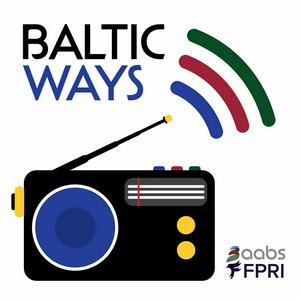
Hol dir die kostenlose radio.at App
- Sender und Podcasts favorisieren
- Streamen via Wifi oder Bluetooth
- Unterstützt Carplay & Android Auto
- viele weitere App Funktionen
Hol dir die kostenlose radio.at App
- Sender und Podcasts favorisieren
- Streamen via Wifi oder Bluetooth
- Unterstützt Carplay & Android Auto
- viele weitere App Funktionen


Baltic Ways
Code scannen,
App laden,
loshören.
App laden,
loshören.



